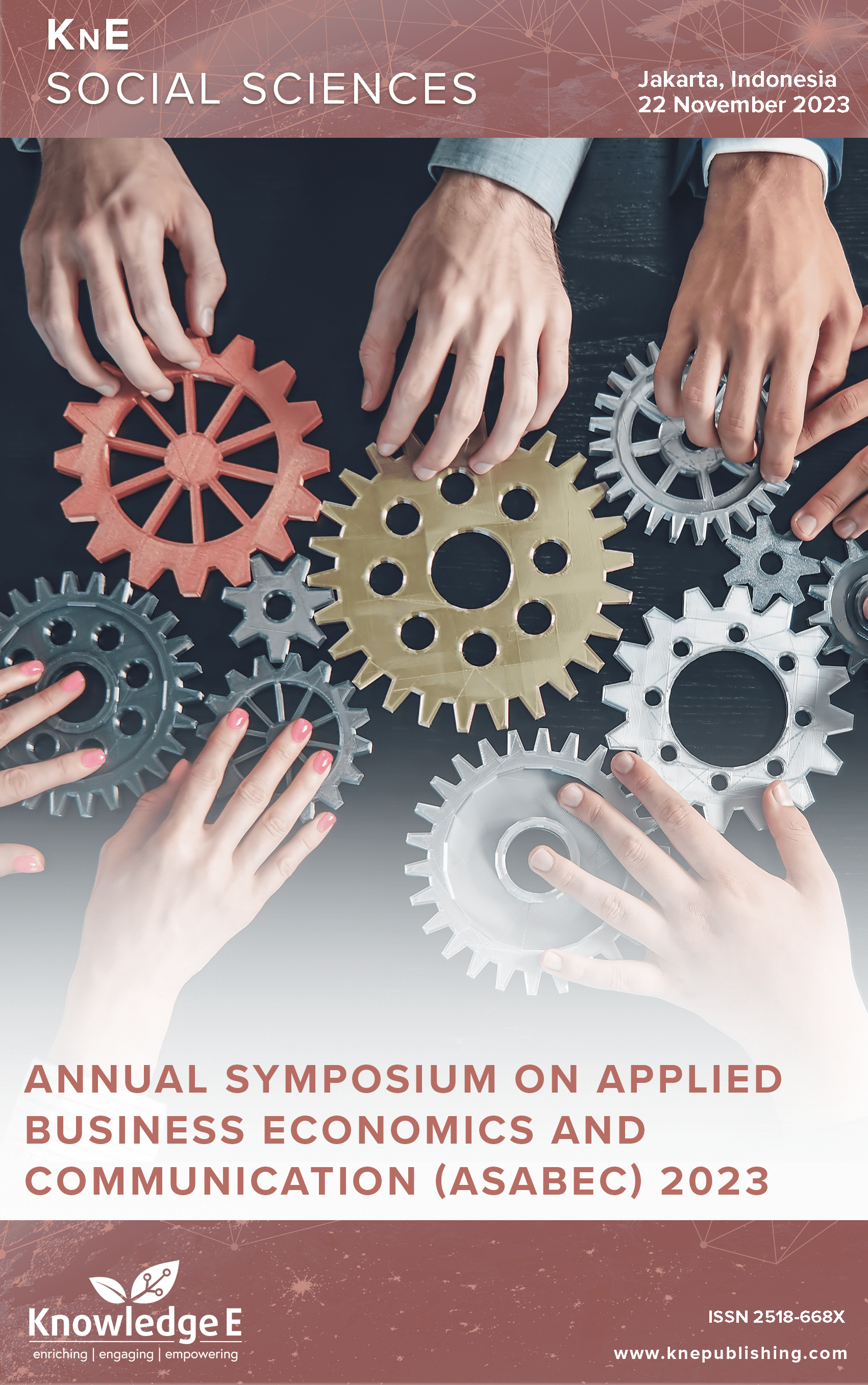The Development Model of Educational Tourism Interpretation in Pondoknongko Village
DOI:
https://doi.org/10.18502/kss.v9i25.17011Abstract
The process of providing information in tourism activities is an effort to provide knowledge or education for tourists, known as tourism interpretation. Pondoknongko, village in Banyuwangi Regency, Indonesia has a food security development program through integrated agricultural and animal husbandry as an educational tourist attraction. This study aims to describe the form of interpretation and analyze the steps in an effort to realize Pondoknongko village as an educational tourism destination through the concept of tourism interpretation. This study used a qualitative method with data collection techniques through observation, interviews, and focus group discussions. The results showed that two models could be applied to develop educational tourism interpretations: 1) a personal interpretation model by encouraging the role of the community as interpreters or local tour guides and the preparation of tourist interpretation guidebooks for a local tour guide for optimizing the learning experience of tourists. 2) A non-personal interpretation model by preparing interpretation media in the form of an interpretation board and educational tourism profile book of Pondoknongko village in an effort to realize the interpretation of educational tourism in Pondoknongko village.
Keywords: tourism interpretation, educational tourism, Pondoknongko Village
References
Indonesia. Undang-Undang Nomor 10 Tahun 2009 tentang Kepariwisataan [Internet]. Sekretariat Negara Indonesia; 2009. Available from: https://peraturan.bpk.go.id/Details/38598/uu-no-10-tahun-2009.
Ritchie BW. Managing Educational Tourism. Multilingual Matters; 2003. DOI: https://doi.org/10.21832/9781873150528
Perdana MA, Rusmawan PN, Tyas IC, et al. The development of cultural event strategy: Swot analysis and QSPM approach. Jurnal Inovasi Ilmu Sosial dan Politik ( JISoP). 2023;5:64–76. DOI: https://doi.org/10.33474/jisop.v5i1.20035
ASEAN-Japan Centre. Workbook on interpretive planning for ASEAN tourism and concept of interpretation [Internet]. 2020 [cited 2023 Sep 29]. Available from: https://www.asean.or.jp/ja/wp-content/uploads/sites/2/ASEAN-Workbook- 20200807-web-1.pdf.
Ham SH, Weiler B. Development of a researcher-based tool for evaluating interpretation [Internet]. 2006 [cited 2023 Sep 29]. Available from: https://sustain.pata.org/wpcontent/ uploads/2015/02/Ham_ToolEvalInterp.pdf.
Muneenam U, Suwannattachote P, Mustikasari RS. Interpretation of shared culture of Baba and Nyonya for tourism linkage of four countries in the ASEAN community. Kasetsart Journal of Social Sciences. 2017;38:251–258. DOI: https://doi.org/10.1016/j.kjss.2016.08.015
Marschall S, Granquist SM, Burns GL. Interpretation in wildlife tourism: Assessing the effectiveness of signage on visitor behaviour at a seal watching site in Iceland. Journal of Outdoor Recreation and Tourism. 2017;17:11–19. DOI: https://doi.org/10.1016/j.jort.2016.11.001
Jacobs MH, Harms M. Influence of interpretation on conservation intentions of whale tourists. Tour Manag. 2014;42:123–131. DOI: https://doi.org/10.1016/j.tourman.2013.11.009
Bhuiyan MdAH, Islam R, Siwar C, et al. Educational tourism and forest conservation: Diversification for child education. Procedia Soc Behav Sci. 2010;7:19–23. DOI: https://doi.org/10.1016/j.sbspro.2010.10.003
Petroman C, Varga M, Constantin EC, et al. Agritourism: An educational tool for the students with agro-food profile. Procedia Economics and Finance. 2016;39:83–87. DOI: https://doi.org/10.1016/S2212-5671(16)30244-1
Chen J, Huang Y, Wu EQ, et al. How does rural tourism experience affect green consumption in terms of memorable rural-based tourism experiences, connectedness to nature and environmental awareness? Journal of Hospitality and Tourism Management. 2023;54:166–177. DOI: https://doi.org/10.1016/j.jhtm.2022.12.006
Wanner A, Pröbstl-Haider U, Feilhammer M. The future of Alpine pastures – Agricultural or tourism development? Experiences from the German Alps. Journal of Outdoor Recreation and Tourism. 2021;35:100405. DOI: https://doi.org/10.1016/j.jort.2021.100405
Koutsouris A, Gidarakou I, Grava F, et al. The phantom of (agri)tourism and agriculture symbiosis? A Greek case study. Tour Manag Perspect. 2014;12:94–103. DOI: https://doi.org/10.1016/j.tmp.2014.09.001
Park D-B, Doh K-R, Kim K-H. Successful managerial behaviour for farm-based tourism: A functional approach. Tour Manag. 2014;45:201–210. DOI: https://doi.org/10.1016/j.tourman.2014.04.007
Junaid I, Ilham MDM, Saharuna MY. Model Pengembangan Interpretasi Pariwisata Edukasi di Museum Kota Makassar. Jurnal Kepariwisataan Indonesia: Jurnal Penelitian dan Pengembangan Kepariwisataan Indonesia. 2022;16:216–236. DOI: https://doi.org/10.47608/jki.v16i22022.216-236
Brochu L. Interpretive Planning: The 5-M model for successful planning projects. InterpPress; 2014.
National Park Service. Comprehensive interpretive planning: Interpretation and education guideline [Internet]. 2000 [cited 2023 Oct 1]. Available from: https://www. nps.gov/subjects/hfc/upload/cip-guideline.pdf#:~:text=This%20Comprehensive% 20Interpretive%20Planning%20%28CIP%29%20process%20is%20now,mix% 20of%20media%20and%20personal%20services%20to%20use.
Huang Z, Weng L, Bao J. How do visitors respond to sustainable tourism interpretations? A further investigation into content and media format. Tour Manag. 2022;92:104535. DOI: https://doi.org/10.1016/j.tourman.2022.104535
Ballantyne R, Hughes K, Lee J, et al. Facilitating zoo/aquarium visitors’ adoption of environmentally sustainable behaviour: Developing a values-based interpretation matrix. Tour Manag. 2021;84:104243. DOI: https://doi.org/10.1016/j.tourman.2020.104243
Ballantyne R, Hughes K, Lee J, et al. Visitors’ values and environmental learning outcomes at wildlife attractions: Implications for interpretive practice. Tour Manag. 2018;64:190–201. DOI: https://doi.org/10.1016/j.tourman.2017.07.015
Knudson DM, Cable TT, Beck L. Interpretation of cultural and natural resources 2nd Edition. 2nd ed. Venture Publishing, Inc.; 2003.
Ham SH. Interpretation: Making a difference on purpose. Fulcrum Publishing; 2013.
Miles MB, Huberman AM, Saldana J. Qualitative data analysis: A methods sourcebook. 3rd ed. SAGE Publication, Inc.; 2014.

